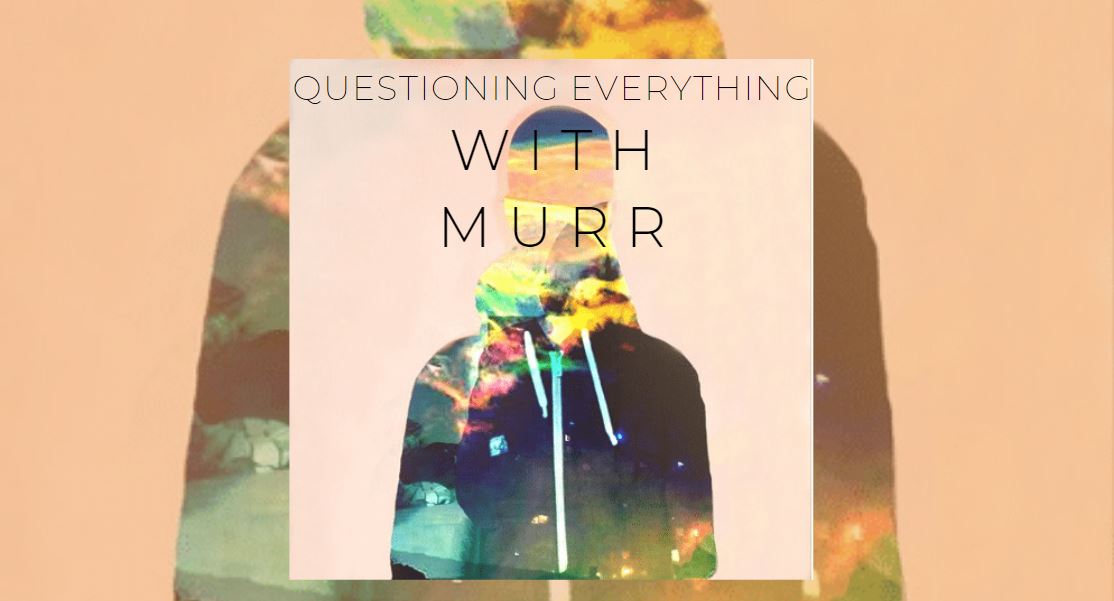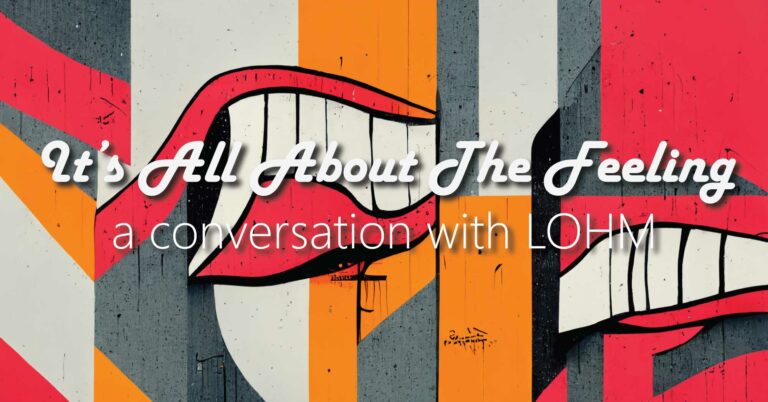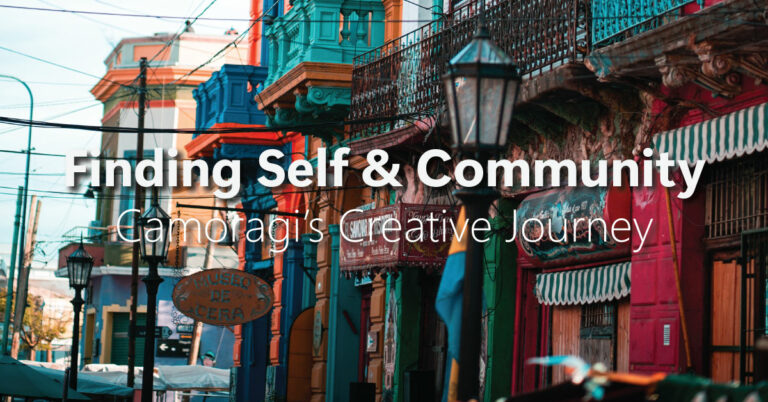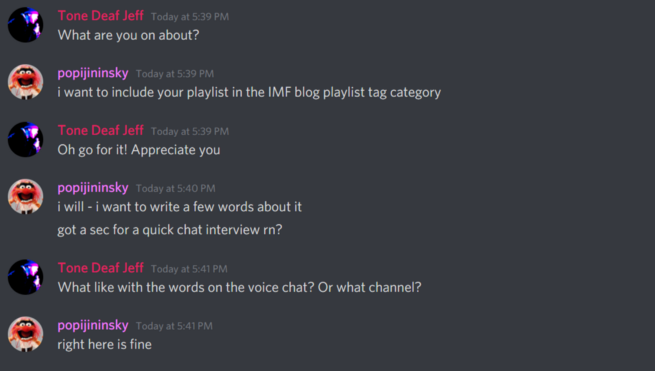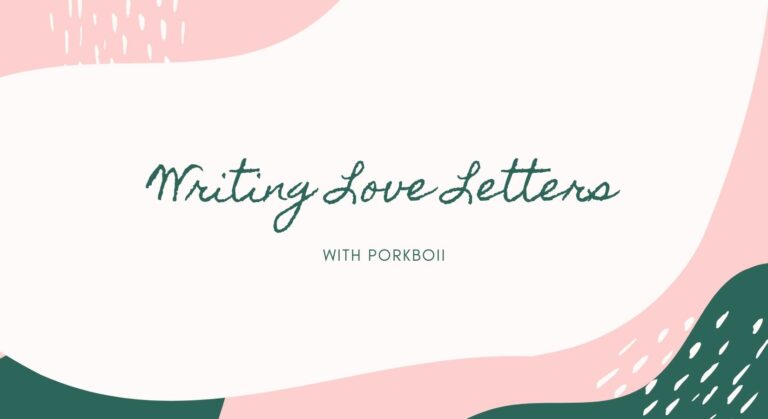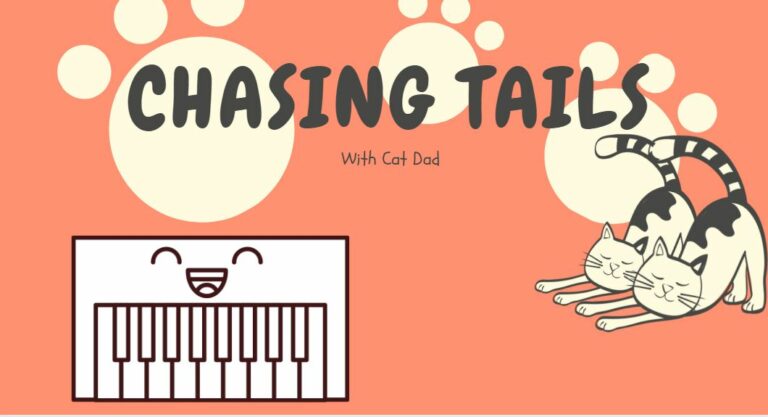Questioning Everything with Murr
Welcome to the 10th edition of the IMF Artist Profile, a series dedicated to the Indie Music Feedback community. The goal of this series is to take a look at the personal lives of some of IMF’s biggest contributors, giving you a peek into who they are as human beings. We’ll pull back the curtain as far as our guests allow and hopefully we will all walk away with a better understanding of the music these individuals are creating as we learn more about them.

With this being the 10th profile, I wanted to just say thank you to everyone who has participated. It’s not easy to bare your soul to the world and every guest I’ve spoken with has been incredibly forthright and open. I’d also like to thank avdrav, Pax Libertas, Vulpz, and TrexJones who each played a vital part in getting this project off the ground as well as supporting it as it moves forward. Most importantly, thank you to the IMF Community. Your continued support of one another is truly inspiring and wonderfully affirming. Thanks for reading along and I hope you enjoy the 10th edition!
Born Michiel (the Dutch equivalent to Michael) inWijchen, a small village in the Southern Netherlands, Murr later moved to Tilburg (a small city in the same region) where he now resides. Currently studying for his Master’s degree in Humanities, Michiel is focusing on Online Culture, which is a soft-blend between Philosophy, Sociology, and Media Studies. Filling his time between music production and his studies, Michiel reads obscure theory books mostly rooted in political theory or ethics and is very politically active as well. He is also an avid writer and is patiently awaiting the release of
Murr’s sound is often uniquely dark yet steeped in dreamy vibes. His incredibly dense tracks pack so much into them, with layers of microscopic sounds that add to the overall piece. In Cloud Sculptor, one of my favorite tracks, Murr uses heavy synth throughout while layering in varying vocals and ambient risers to push and pull the listener. Taking on qualities from multiple genres, the track infuses concepts from Synthwave, Trap, and IDM to create something uniquely Murr. Each track and collaboration has his signature tone, but they all vary in massive ways. Today we are going to learn more about the man behind Murr. We will talk about life in the Netherlands, Music, Politics, and Philosophy.
Now onto the questions:
Baaz: Your tracks are absolutely stuffed to the brim with interesting sounds and ambiance. What is your approach to finding those smaller and more subtle aspects of a track?
Murr: I usually go around the block and collect samples on my mobile phone. The higher quality sounds are recorded in my room with my SMB7. The downside of this is that pretty much all the sounds are in mono — which is very uninteresting to me from a sonic perspective.
So what I then do to fix this is all kinds of trickery in Ableton to make them stereo or stack effects on them that swell or move to make them otherworldly, the main thing in my arsenal being extremely thick layers of reverb. The downside of this is that it can really mess up the mix, so I like to keep my bass and percussion pretty tame — so that the sounds that build ambiance have breathing room to create these other-worldly acoustics. I believe this is the key to my sound. My central feature is attempting to create rooms with acoustics that should not be able to exist in the real world but are possible to create in a DAW. I think this is the thing that makes producing so exciting to me. The limitless possibilities of shaping a “space” in where you capture your listener.
Baaz: As a vocalist, I am always very critical of how VOX comes into play within any given track. Your vocal layers are always extremely well balanced but they also have some of the most interesting effects tied to them. Can you breakdown what you might typically do to a vocal layer in one of your tracks?
Murr: It’s quite interesting that you brought this up. I’m currently working on my first track where I make a serious attempt at singing without burying the vocals in the mix. But how I normally go over things: I like to look at the creation of songs as a collage. Usually, I stack all sorts of layers on top of one another that, together, form a whole — without any clear resemblance of a lead instrument. Everything together forms the lead — just like in ambient, shoegaze, or modern pieces of symphonic music. This usually involves giving the vocals an effect treatment that should serve the bigger picture. It should fit in the collage as a leitmotiv. And this usually means burying them in the mix and drowning them in reverb. I want them to be distant, just barely resembling something human — filling up sonic gaps as a backdrop. The effects I use vary from song to song, but I always saturate them and reverb them. In some instances, I like to stack amps on them so that they resemble nothing like a voice anymore. An example of this is the distorted pad synth I used in Carte Blanche, or the cello-like layer in Overcome, which are both me singing through a chain of reverbed amps.
Baaz: In our discussions, you had mentioned that Wijchen is a place you deeply desire to return to someday. Can you tell us a bit about your memories from here and what is so significant to you?
Murr: Oh man, I used to hate my village when I was a rebelling teenager. We had like this church that I hated, and there were too many old and boring people. On top of that, while my memories in middle school are generally great as a white kid, children of color did not get the same treatment and I still didn’t forgive myself for not sticking up for them. But the nature was so nice, and the houses and roads perfectly complimented that in an elegant fashion.
Now, almost a decade later, people from all places have moved in. The village changed culturally and spiritually. It now more resembles a small city than a village. My mom even got the church to raise a rainbow flag in pride month, which was so freaking cool of them. I also think the kids from gen Z today are way less bigoted and more open-minded than my generation which gives me great hope for humanity and my old village. What now remains is the perfect blend of nature and civilisation, a place where I can rest and feel at ease. Because in my years as a student I found out I actually didn’t like the city as much as a thought I did.
Baaz: When most people think of Philosophers, they think of Kant, Plato, or Socrates; historical figures who existed in another time. As a student of Philosophy, can you tell us about anyone alive today who stands out to you as hyper-relevant in today’s global climate?
Murr: I think it’s important to view philosophy not as something esoteric, but as something everyone can do. There are lots of great philosophers that never put a word on paper, or speak a word about it publicly, or even read philosophy books for that matter. My dad included, and people in IMF. I have had many profound insights when talking to people about a whole plethora of topics in the discord server. Usually by doing back-and-forths. Even my little brother who, back when he was eight, said that he wasn’t sure if I saw the same colours as him (which a philosopher would label as qualia — individual instances of subjective, conscious experience). It makes me feel exceptionally good to view everyone as a potential philosopher, it makes conversations so adventurous.
But to address your question more directly: my gut instinct, indeed, always goes to Noam Chomsky. He is the person that inspired me to become politically active and shaped me the way I am today. I’d describe myself as a Chomsky disciple even when it comes to my political philosophy. I identify as an Anarchist, but in a scientific sense, just like him. What this means is that I oppose utopian ideals and use it, instead, as a horizon — a general direction. What it means to be a scientific Anarchist is the tendency to put the burden of proof on institutions of power. They need to legitimize their existence. If they cannot do this, they ought to be abolished — or at the very least restructured. Anarchism is about the minimization of coercion — about achieving the maximum amount of freedom for the most amount of people, and this process ought to be empirical to avoid harm and hasty decisions born out of ideological blindness.
But funnily enough I also quite like Slavoj Zizek, a philosopher that has had quite some beef with Chomsky. Zizek is a postmodern thinker that became famous for his views on ideology. Being a postmodern thinker basically means an extreme skepticism for enlightenment values such as empiricism, and attempting to deconstruct ideological paradigms. Postmodern thinkers have a tendency to view human thought and interaction as a web that is interlinked and self-perpetuating.
This might be tough to wrap your head around, so I’ll give an example: if a sociologist would view the high suicidality rates of men, instead of addressing the issue head-on, they would first look at the things that are interlinked with what it means to identify as a man at this moment in history. It means domination, being the active role in romantic interaction, and not showing many emotions. These social expectations are interlinked and intersectional, which means that by looking at what effects these nodes have on others they know where societal problems are hidden. In this case: the solution for high suicidality rate is addressing harmful aspects of toxic masculinity — specifically being expected to suppress emotions and not seek help. It’s zooming out and peering down at the web, so to speak. The same can be said for postmodern linguists that look at a web of words and how they refer to one another, or postmodern philosophers like Zizek, who peer down at the web of ideology. Zizek’s best work is found in his story and film-analysis in my opinion.
Baaz: You mentioned that you are politically active in your socialist party. Can you describe the political climate in The Netherlands for us? What are the challenges your generation is facing in your country today and what do you hope to change?
Murr: The political climate, like the rest of the world, is terrible. But I still call myself lucky, because here there are no reactionaries steering the ship (yet). However, I am still deeply concerned about the growing scapegoating of minorities and the continued austerity to our healthcare system.
During the era of COVID-19, we see that those who provide least to the economy are rewarded the most — which is one of the greatest forms of injustice of our time, in my opinion. And this goes for any country that adopted neoliberalism as its main economic paradigm.
Furthermore, socialism isn’t as popular as it once was. I’d even go as far as to say that anti-capitalist sentiment is bigger in America than in the Netherlands at the moment. Which is quite curious at first glance, right? But there is a reason why this is happening. The more laissez-faire capitalism accelerates, the larger the class conflict becomes. And class conflict means opportunities for bottom-up movements to take center stage. This is why my eyes will be on America for now — because I believe that is the most likely place where structural economic change will happen which hopefully ripples over the world. Call me an optimist, but the history of capitalism has proven that solutions will come in dire times. As Rutger Bregman said (roughly translated): “Extreme times breed extreme solutions.”
I believe the solution to all the above-stated concerns is having solidarity with the struggle and oppression of others. I am super lucky that my main concern of coercion is economical. But others aren’t as lucky as me. This is why my main political focus is building alliances of solidarity between groups. Me, the party, and my socialist friends are currently working on that. Solidarity to BLM, solidarity to feminists, transgender people, teachers, and healthcare employees. This ought to transcend borders. We need international solidarity because our problems are globally intertwined.
